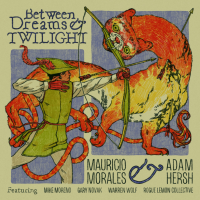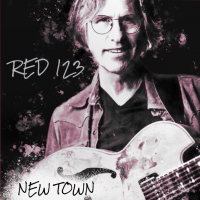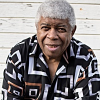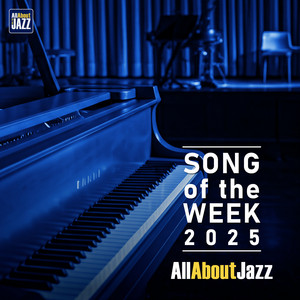Home » Jazz Articles » Marilyn Crispell
Jazz Articles about Marilyn Crispell
Louis Moholo-Moholo - Marilyn Crispell: Sibanye (We Are One)

by AAJ Italy Staff
A parte scontati riferimenti alle vicende elettorali d'oltreoceano, il titolo di questa incisione rimanda ad una unità d'intenti che si respira a piene mani lungo le sette tracce dell'album. Sibanye (We Are One) celebra l'incontro tra due spiriti liberi: quello esuberante, africano, militante, di Louis Moholo-Moholo e quello intellettualistico, rigoroso, matematico (ah, quella frequentazione con Braxton) di Marilyn Crispell. E come a volte capita quando in gioco ci sono due personalità profonde e accomunate da una visione spirituale della musica ...
Continue ReadingBarry Guy - Marilyn Crispell - Paul Lytton: Phases of the Night

by AAJ Italy Staff
Phases of the Night potrebbe essere definito un viaggio attraverso il suono, attraverso la sua grana cristallina-densa-impura e la sua dinamica con cambi di direzione improvvisi: da aggrovigliata a sospesa, da frammentaria a concatenata, da riflessiva a tellurica... È appunto dalla concezione del sound, nella sua gamma espressiva più ampia, che sembrano prendere forma le strutture dei brani, tutti scritti da Barry Guy. A metà e nelle battute finali del lungo e tortuoso brano d'apertura emerge un tema ribattuto che ...
Continue ReadingMarilyn Crispell: Vignettes

by Martin Longley
Pianist Marilyn Crispell was always primarily known as a stylistic descendant of Cecil Taylor, never resting for a moment as she spewed out endless runs of high invention, cascades of pointillistically constructed density. But everyone becomes calmer eventually and this solo piano set finds Crispell in an extremely introverted state, examining the relationship between carefully enunciated melody and expansive silence. There are seven vignettes, interspersed between longer, more overtly tuneful pieces, nearly all composed by Crispell. Merging ...
Continue ReadingMarylin Crispell: Vignettes

by Martin Gladu
This time going at it alone sans the support of the piano-trio setting that served her so well on her previous outings for ECM, Vignettes sees pianist Marylin Crispell in an even more vulnerable context than usual. An integral part in the development of ECM's free music corpus, Crispell enjoys great company in the label's prestigious roster as one of the first-generation exponents--with Annette Peacock and Paul Bley--of the free-ballad, a genre nurtured under the aegis of founder/producer Manfred Eicher.
Continue ReadingMarilyn Crispell: Vignettes

by Budd Kopman
Pianist Marilyn Crispell has always been an intense musician, no matter what style of music she happens to be playing. Two of the high points of the ECM catalogue, from the standpoints not only of intensity, but of beauty were Nothing Ever Was, Anyway (1997) and Amaryllis (2001), both with bassist Gary Peacock and drummer Paul Motian. With Vignettes, Crispell continues make beautiful music with an intensity that is breathtaking. The seventeen tracks sound of a piece, ...
Continue ReadingMarilyn Crispell: Vignettes

by AAJ Italy Staff
I primi quattro brani di Vignettes si sviluppano lentamente, senza esigenze impellenti, con un senso narrativo ampio, anche se non finalizzato in modo perentorio sotto il profilo melodico. Difficilmente in questo progredire si potrebbe scorgere una ripetitività di stampo minimalista, in quanto la varietà dinamica delle spaziature ritmiche e del tocco della Crispell definisce un pianismo elegante e di classico equilibrio. Prevale piuttosto un'austerità quasi liturgica, una ferma determinazione, che non conosce incertezze e rimugina senza clamori le ossessioni di ...
Continue ReadingMarilyn Crispell: Vignettes

by John Kelman
A relative latecomer to jazz, occupying the classical and contemporary composition spheres until the age of 28, Marilyn Crispell's early ventures into jazz and improvised music were in the context of a more aggressive approach informed by Cecil Taylor. Over the past decade, however, while the pianist's sense of adventure hasn't diminished, she's introduced a sparer lyricism, making three previous ECM releases--1997's Nothing Ever Was, Anyway, 2001's Amaryllis and 2004's Storyteller--works of rare beauty, where her musical trilogues have been ...
Continue Reading



















